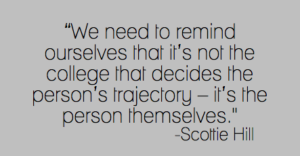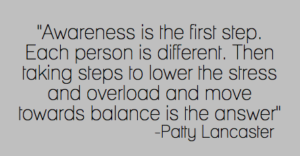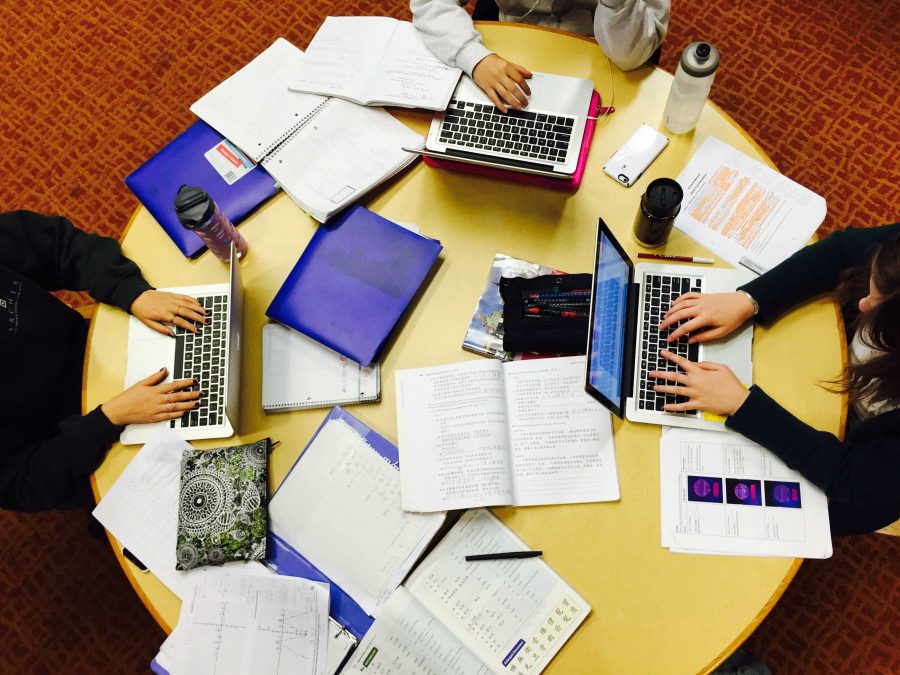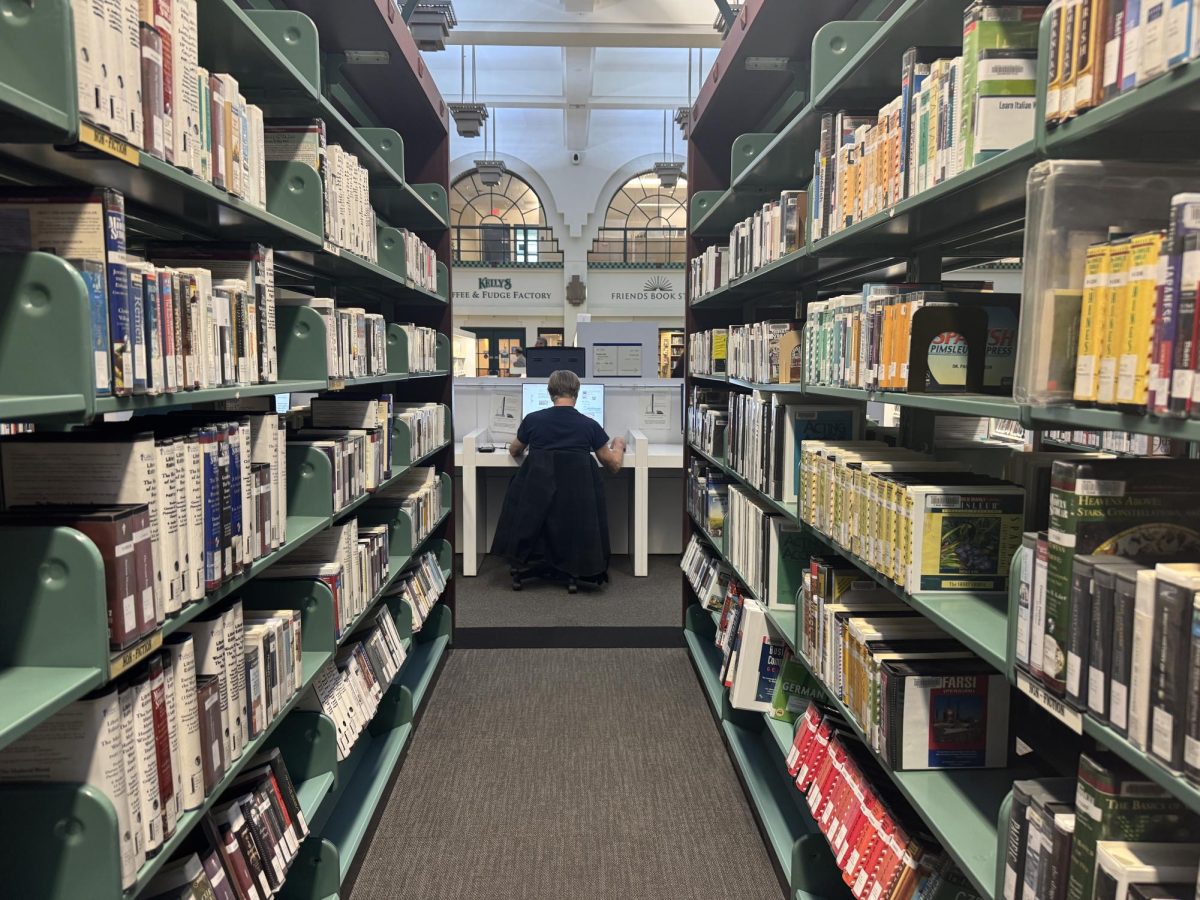Grades. Parents. Extracurriculars. College essays. Rejections. Standardized tests. All-nighters.
And it’s only Tuesday.
According to experts, high school students suffer from rising stress and anxiety levels caused by high expectations and a lack of balance in their academic and social lives.
The American Psychological Association’s annual, national survey reported that 83 percent of teens say school “is a somewhat or significant source of stress.” Even during summer break, these teens still reported having above-average levels of stress, according to the national survey.
Many school counselors, teachers and administrators believe high school students are being held to increasingly high expectations and demands. Some believe the constant use of technology and media in students’ lives can also add to the stress.
“High school students have less down time where they’re away from constant performance, stimulation, choices and peer pressure via the media and the internet,” Student Counselor Patty Lancaster said. “Students have to be much more aware and true to themselves now at an age where what others would think of you matters so much.”
“People can also be influenced by the coverage of stress in the media,” she said. “I think we become a culture where our media broadcasts fear on a daily basis, and that adds to the stress level of parents and high school students.”
High school students aren’t the only ones being affected by the stress coverage in the media; students are “asked to think about [college] at a younger and younger age,” Lancaster said.
“I saw a television program the other day where they were talking to kindergarteners about college and that was a first for me. So college is a wonderful goal that can be looked forward to and planned for… But relentless worry and stress can be harmful,” she said. 
“I heard a bunch of ninth graders are already talking about their top choices and all this and seeing it from a senior’s perspective, I think it’s a little bit ridiculous,” Archer student Xochitl Garcia-Euyoque ’15 said.
However, College Guidance Counselor Scottie Hill wrote in an email interview, “In some cases this is great! If you are a young kid from a disadvantaged background and neither of your parents went to college, you need to hear positive messages about college and how you can go to college [at a young age].”
“It’s proven that this is a good idea and helps college-going rates among [kids who are the first in their family to attend college],” Hill said.
“We need to remind ourselves that it’s not the college that decides the person’s trajectory — it’s the person themselves,” she said.
According to Lancaster, high school students also are affected by the stiffening competition to academically succeed. Students are pressured to stand out amongst their peers and catch the attention of college administrators.
“They worry about competing with their peers,” Lancaster said. “The comparing and competition adds to the stress. I think it’s hard for teenagers not to engage in the competition. It’s natural, but we need to be aware of how it affects each other and keep it in check.”
In an interview with The Atlantic, Dr. Sharon Sevier, Chair of The American School Counselor Association, said the ever-growing list of tests necessary for the college application process adds to students’ need to outshine their competitors on multiple different grounds. The SAT, SAT Subject Tests, ACT, IB and AP exams all contribute towards the stress and anxiety of high school students, she said.
According to Sevier, students have to strive for the best grades in addition to doing well on college application exams.
“There seems to be a belief that there are certain courses that are the ‘right’ ones to take. Getting the ‘right’ grade in those classes leads to the potential of getting into the ‘right’ college or university,” Sevier said. “Students are challenged to take a demanding course of study, to get a high GPA and gain admission into those schools.”
“The application process is driven by the colleges to a large degree,” Lancaster said. “Students have to fit all this in at a time when they’re at the peak of their academic and extracurricular participation. So if you’re in 11th grade and 12th grade and you’re having to add this to an already pretty loaded schedule, it’s really stressful.”

Garcia-Euyoque agrees: “We’ve been able to handle school work all of high school, all of our Archer career, but now it’s like we have to focus on filling out forms and all these documents and admissions and I think it’s a lot,” she said.
According to JoNel Aleccia, senior health reporter and editor at NBCNews.com, “the pressures of school work, social life, sports or other activities… mean that young people may be more tense than ever before.”
“If students overload their systems with too many activities, expectations, or worries that are unrealistically possible in a 24 hour day, [they’re] going to feel stressed,” said Lancaster.
Lancaster said that students are also indirectly competing with each other to see who is most stressed.
“Try to avoid the ‘I am stressed’ competition. ‘I’m more stressed!’ ‘No- I’m more stressed!’ This type of competition breeds stress rather than encourages problem-solving and getting relief. I think it makes you even more stressed,” she said.
“I got stressed seeing other people in that mood and that mindset,” Garcia-Euyoque said. “I thought ‘Maybe I’m not doing enough,’ ‘Maybe I haven’t sent in all my forms,’ ‘What if I’m not doing enough, or doing something wrong?’ or ‘What if’, I don’t know.”
“I hate to be corny, but students really need a village of supporters,” Lancaster said.
According to Lancaster, the adults in the students’ lives need to reflect on how their “schedules and how [their] expectations impact students and take responsibility for [their] part.”
 “I think, obviously [the college application process] is a necessary evil, but I think if you take it step by step and you have a good group of people that are supporting you, and you have a good family support group and with your friends at school, I don’t think it’s as difficult,” Garcia-Euyoque said.
“I think, obviously [the college application process] is a necessary evil, but I think if you take it step by step and you have a good group of people that are supporting you, and you have a good family support group and with your friends at school, I don’t think it’s as difficult,” Garcia-Euyoque said.
“The college process doesn’t have to be as hard as people make it seem. It’s relatively easy if you make it that way. You don’t have to be so hard on yourself,” she said.
Garcia-Euyoque believes that students need to have a strong group of friends who they can talk about college with.
“This is when it matters the most to have that group that will be able to support you and take you out of that funk of being so stressed,” she said. “It’s also a scary time because, you know, you’re leaving this place. Archer has been such a home and such a nice comfortable place to me and I think that’s scary to, change is scary but it’s exciting and also really scary.”
Garcia-Euyoque encourages seniors to focus on the present: “This is your last year at Archer,” she said. “It’s a great place; I call it home now, and you want to really enjoy the people who are here, the teachers, the students, everyone, and make those relationships last.”










